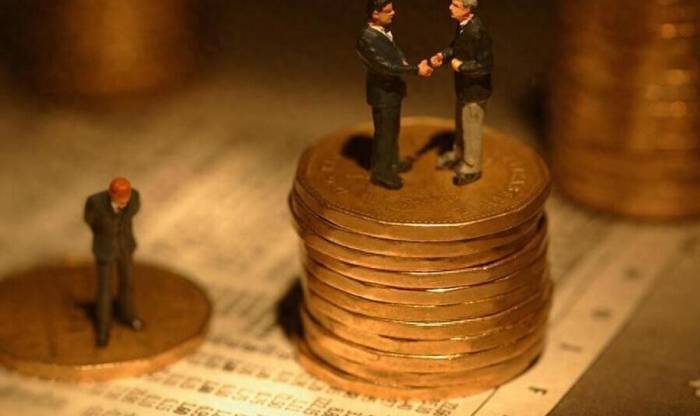Recently, the sharp decline of the US Dollar Index has attracted widespread attention. Renowned economist Peter Schiff expressed his concerns about the dollar crisis and the possibility of an economic collapse on his social media. As the US Dollar Index fell to a 13-month low, Schiff predicted that it might drop below 90 by the end of the year, warning that this could trigger a series of chain reactions, including a surge in consumer prices and long-term interest rates. This article will delve into this topic, analyzing the reasons for the decline of the US Dollar Index and its impact on the US and global economies.
Reasons for the Decline of the US Dollar Index
The decline of the US Dollar Index is closely related to the recent policy adjustments by the Federal Reserve. Federal Reserve Chairman Jerome Powell's speech at the recent Jackson Hole central bank annual meeting hinted at upcoming interest rate cuts. Powell stated that the timing for policy adjustments has arrived and expressed confidence in the inflation rate moving towards the 2% target. He also emphasized that the Federal Reserve does not seek or welcome further cooling of the labor market and pledged to do everything possible to support the labor market to achieve price stability. Analysts generally believe that this is Powell's strongest signal for a rate cut to date.
The context of this policy adjustment is the complex situation faced by the US economy. On one hand, the US economy maintains a relatively robust growth trend, with consumer confidence and retail sales data performing well; on the other hand, inflationary pressures have weakened, and uncertainties in the job market have increased. In order to balance its dual mandate—maintaining price stability and maximizing employment—the Federal Reserve chose to lower interest rates to stimulate economic growth and alleviate potential economic slowdown pressures.
Impact of the Decline of the US Dollar Index
The status of the US dollar as the world's reserve currency has been challenged. The decline of the US Dollar Index may weaken the attractiveness of the US dollar, leading international investors to reduce their holdings of dollar assets and instead seek other currencies as safe-haven instruments. This could lead to turmoil in the global foreign exchange market, increasing financial market uncertainty.
A weaker dollar exacerbates US economic problems because it makes dollar-denominated debt easier to repay, but at the cost of increased inflation and reduced consumer purchasing power. Additionally, the devaluation of the dollar can also lead to rising import costs, resulting in a surge in consumer prices and long-term interest rates.
The decline of the US Dollar Index will have a broad impact on the global financial market. For emerging market economies that rely on dollar financing, the devaluation of the dollar will lead to capital outflows and increase the debt repayment pressure on these countries. The devaluation of the dollar can also trigger competitive devaluation of global currencies, intensifying international trade tensions.
Peter Schiff's Views and WarningsPeter Schiff is a renowned economist and a well-known gold bull. Last week, he posted a series of messages on social media, sharing his views on the U.S. economy and the U.S. dollar. Schiff warned that a decline in the U.S. Dollar Index could trigger a dollar crisis, leading to an economic collapse and a surge in consumer prices and long-term interest rates. He believes that the U.S. Dollar Index could fall below 90 by the end of the year and even below the 2020 lows in the coming years.
Schiff pointed out that the decline in the U.S. Dollar Index is one of the main reasons for the reduction of the inflation rate from 9% to 3%. However, the Federal Reserve is using "low" inflation as an excuse to lower interest rates, which will further lead to the devaluation of the dollar and a surge in inflation. Schiff also criticized the Federal Reserve's policies, arguing that their policy mistakes could worsen economic conditions.
Schiff observed that while the dollar is depreciating, the price of gold is climbing, reflecting market concerns about the Federal Reserve's policies. Gold, as a traditional safe-haven asset, often performs well during periods of economic uncertainty. The rise in gold prices indicates that investors' concerns about the future economic outlook are intensifying.
Impact on the U.S. Economy
A decline in the U.S. Dollar Index will lead to increased import costs, thereby driving up consumer prices. As the dollar depreciates, long-term interest rates may also rise. This will not only affect consumers' purchasing power but also increase the borrowing costs for businesses and governments, having a negative impact on the economy.
A devaluation of the dollar will increase uncertainty in the economy, affecting the confidence of businesses and consumers. This decline in confidence will lead to reduced investment and consumption spending, thereby putting pressure on economic growth.
A devaluation of the dollar will also limit the Federal Reserve's room for further easing policies. If the dollar continues to depreciate, the Federal Reserve will have to consider raising interest rates to support the dollar, but this will further increase the risk of economic slowdown, putting it in a dilemma.
A devaluation of the dollar will lead to capital flowing back to the U.S. from emerging markets, exacerbating the pressure of capital outflows in these markets. This is particularly dangerous for economies that rely on foreign capital.
A devaluation of the dollar will prompt other countries to take similar measures to protect their export competitiveness. This competitive devaluation will intensify global trade tensions and have a negative impact on the global economy.
As one of the most important reserve currencies in the world, changes in the value of the dollar will have a significant impact on global market sentiment. A devaluation of the dollar will lead to a pessimistic market sentiment, increasing the uncertainty in global financial markets.The decline of the US Dollar Index has sparked economist Peter Schiff's concerns about the potential for a dollar crisis and economic collapse. The status of the US dollar as the world's reserve currency is being challenged, and its depreciation could exacerbate domestic economic issues in the United States and have widespread effects on the global financial market. Although Schiff's views are controversial, the questions he raises are thought-provoking. In today's highly interdependent global economy, any adjustment to the monetary policy of a major country could trigger a chain reaction, affecting global economic stability.
Faced with current challenges, policymakers need to act cautiously and take appropriate policy measures to address potential risks. For investors, it is crucial to closely monitor economic data and policy dynamics to adjust investment strategies in a timely manner to cope with future uncertainties.
The decline of the US Dollar Index is not only a significant signal for the US economy but also an important barometer for the global economy. Schiff's perspective reminds us that the global economy faces multiple challenges, including inflation, currency devaluation, and financial market volatility. In this era of uncertainty, we need to place greater emphasis on risk management to ensure economic stability and development. As the global economic environment changes and technology advances, governments and financial institutions around the world need to strengthen cooperation to jointly address challenges and maintain the healthy development of the global economy.
Extended Analysis: The Relationship between the US Dollar Index and Gold Prices
There is typically an inverse correlation between the US Dollar Index and gold prices. When the dollar strengthens, gold prices tend to fall; and vice versa. The logic behind this phenomenon is that the dollar is seen as an important global reserve currency, while gold is a traditional safe-haven asset. When market confidence in the dollar increases, investors tend to reduce their demand for gold, leading to a decrease in gold prices. Conversely, when market confidence in the dollar weakens, investors tend to increase their demand for gold as a store of value, which leads to an increase in gold prices.





























